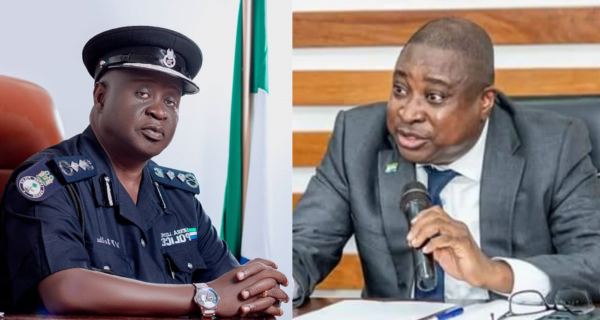In a shocking revelation, Sierra Leone’s Inspector General of Police, William Fayai Sellu, delivered a damning address to Parliament on Monday, March 18th, 2024. His speech rocked the nation as he uncovered recent drug busts and a disturbing discovery of counterfeit money, reigniting concerns over corruption and accountability within the country’s institutions.
Sellu’s report shed light on a troubling incident dating back to 2021, involving a Nigerian citizen apprehended with a substantial sum of counterfeit US dollars amounting to an estimated US$34,000. The seized currency was promptly forwarded to the Bank of Sierra Leone for verification. However, since then, authorities have been met with an eerie silence, with no updates forthcoming from the bank.
What further complicates matters is the implication of former officials in this scandalous affair. The then-governor of the Bank of Sierra Leone, Keifala Kallon, finds himself under scrutiny once more, having faced accusations of money laundering during his tenure. Additionally, the former Inspector General of Police, Sovula, who was at the helm during the initial seizure, has been embroiled in numerous allegations of bribery and unprofessional conduct, leading to his dismissal from office. The timing of these events raises serious questions about their involvement and the subsequent lack of accountability.
Of equal concern is the role of Dr. Ibrahim L. Stevens, the current Bank governor, who served as Kallon’s deputy at the time of the confiscation. Despite being privy to the inner workings of the institution, Stevens has remained conspicuously silent in the face of Sellu’s allegations. This silence has fueled speculation among citizens and law enforcement alike, prompting urgent demands for transparency and accountability from the Bank of Sierra Leone.
The credibility of the Bank of Sierra Leone hangs in the balance as citizens and authorities alike await answers. Sellu’s revelation has ignited a firestorm of public outrage, with many questioning the integrity of the institution entrusted with safeguarding the nation’s financial stability. The failure to provide a timely response only serves to erode trust and confidence in the bank’s ability to uphold its mandate.
As pressure mounts on the Bank of Sierra Leone to break its silence and address the lingering questions surrounding the confiscated funds, the spotlight remains firmly fixed on the actions of former officials and the current administration. The people of Sierra Leone demand accountability, transparency, and swift action to rectify this egregious breach of trust. Until then, the specter of corruption looms large, casting a shadow over the nation’s future.


 1 Comment
1 Comment









Comment(s)
Disclaimer: Comments expressed here do not reflect the opinions of Sierraloaded or any employee thereof.